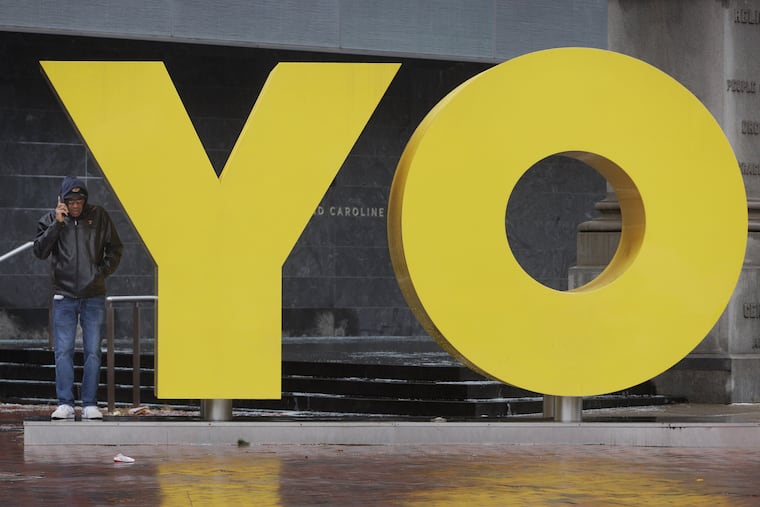Biden signs bill that could make Philly’s Jewish museum a Smithsonian Institution
The approval will establish a commission that'll study the viability of Weitzman National Museum of American Jewish History's ownership transfer

On Wednesday, President Joe Biden signed a bill that could lead to the Smithsonian Institution taking over the ownership of Philadelphia’s Weitzman National Museum of American Jewish History.
The president’s approval is the latest in a series of steps needed before it can officially become a Smithsonian museum. The news comes less than a month after the museum named Dan Tadmor to be its next president and CEO, replacing Misha Galperin who is stepping down.
“We think becoming a member of the Smithsonian will significantly elevate the mission of the museum to educate all Americans about the Jewish people in America, and their contributions. And expand [the museum’s reach] much more broadly across the country,” Philip M. Darivoff, the Weitzman’s chair emeritus, said.
The Weitzman is already a Smithsonian affiliate museum but becoming a Smithsonian Institution will bequeath the 48-year-old organization with a national relevance along with wider engagement opportunities and increased resources to elevate its work.
The bipartisan, bicameral bill H.R.7764 to establish a commission to study the viability of the ownership transfer was introduced in the House in March by Rep. Debbie Wasserman Schultz (D., Fla.), and coled by Rep. Mike Turner (R., Ohio), Rep. Brendan Boyle (D., Pa.), and Max Miller (R., Ohio).
The bill was then presented in the Senate by Sen. Bob Casey (D., Pa.) and Sen. Susan Collins (R., Maine), and was passed unanimously in the House in September and the Senate on Dec. 3.
On Thursday, Boyle called the president’s signing to be “a critical step” toward the Weitzman becoming a part of the Smithsonian Institution. “Integrating the museum into the Smithsonian family would not only expand its reach and resources but also ensure its continued ability to educate and inspire future generations about the rich culture and contributions of American Jews,” he said in a statement.
In the next 90 days, Congress will appoint eight commissioners to the “Commission to Study the Potential Transfer of the Weitzman National Museum of American Jewish History to the Smithsonian Institution Act.” The commission will have two years to study the feasibility of the proposition and recommend whether or not the Weitzman should join the Smithsonian.
If approved, separate legislation would be required to make it happen.
The Weitzman will not have a say in the selection process for commissioners but will need to fundraise to support the commission’s work. While Darivoff couldn’t quote an exact number, the costs are estimated to be a “couple million dollars.”
“I’m confident that there are many in our community who are enthusiastic about this and want to support the commission’s work,” he said.
A change in ownership, Darivoff insisted, would not lead to the distancing of the Jewish community the museum aims to serve and celebrate. Instead, he said, the museum’s reach would grow alongside continued “representation of the community” within the new governance model, which will be headed by Smithsonian’s Board of Regents.
The Smithsonian currently runs 20 museums, including New York City’s Cooper Hewitt, Smithsonian Design Museum; Washington’s National Portrait Gallery and the National Museum of African American History and Culture; and the National Museum of the American Indian in New York City and Washington. The National Museum of the American Latino and the Smithsonian American Women’s History Museum are both in development.
Commissions in the past have recommended against museums’ inclusion within the Smithsonian umbrella, but Darivoff is optimistic about the Weitzman.
“If there was a reason that they thought there shouldn’t be a National Museum of American Jewish history to go alongside all of these other museums, that would be hard to understand,” he said. “And if they said the location of the museum on Independence Mall in Philadelphia is the wrong place for this museum, that would be hard to understand, too.”
Museum leadership, he said, is euphoric about the possibility “to do something really important with this sacred Philadelphia cultural institution and make it truly national.”
Like the Liberty Bell and Independence Hall, Darivoff wants the Weitzman to become a monument of historical importance that, with complementary online exhibits and programming, will “address the epidemic of ignorance about who Jews are and how they’ve contributed to this country.”
The article has been updated to include Rep. Brendan Boyle’s statement.